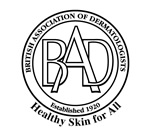British Association of Dermatologists launches psychological support website

The British Association of Dermatologists (BAD) launches Skin Support (www.skinsupport.org.uk), a Department of Health funded website providing psychological support for people with skin conditions.
The website brings together, and links to, patient information leaflets, support groups, self-help materials and help-lines.
Prior to the Skin Support website, support materials and services directed specifically at skin disease patients were sporadic and disparate, and those that did exist were not always easy to find or access. While there are both patient support groups, centred on individual skin diseases, and also mental health charities, until now there has been no centralised hub that provides coordinated resources, appropriate to people with problems that go beyond their skin and are psychological or psychiatric – this is role that Skin Support fills.
Skin conditions are the most frequent reason for people to consult their GP. It is not just the physical symptoms that affect sufferers’ lives – diseases that are visible, disfiguring or long-term can carry a multitude of psychological and social effects, including isolation and depression. In the UK, psoriasis alone is linked to 300 suicide attempts annually. A British Association of Dermatologists’ survey in 2011 revealed that 85 per cent of patients indicated to their dermatologist that the psycho-social aspects of their skin disease were a major component of their illness.
Furthermore, stress, as well as being a frequent side effect of skin conditions, is also known to actually cause and exacerbate skin disease. Therefore psychological and self-help interventions can be crucial not only for easing mental distress but also for improving many of the physical symptoms of the skin disorder.
Dr David Eedy, President of the British Association of Dermatologists said: “Skin diseases can have a devastating impact on people’s mental and emotional wellbeing, and the benefits of support on both mental health and physical symptoms are well known in medical circles. However, few dermatology departments have access to local liaison psychiatrists and their associated services, so self-help can be a vital tool for patients. The problem is that finding self-help materials can be difficult – patients don’t know where to look and resources are available across so many different websites. The beauty of the Skin Support website is that it brings together lots of content in one easy to navigate place, and it tailors the materials to people’s individual skin disease and any physical impairment this may involve.
?A report produced by the All Party Parliamentary Group on Skin in 2013 showed that there is under provision of psychodermatology services. Whilst a website can in no way replace this kind of specialist care, it is a good starting point and will be of enormous benefit to clinicians as well as patients.?
Dr Andrew Thompson is Reader in Clinical Psychology at The University of Sheffield and a practising NHS Clinical Psychologist, and he was a member of the advisory panel associated with the development of the website. He said: “Skin conditions can have a significant psychological impact on people and it is well acknowledged that access to psychological intervention and even to good quality evidence based self-help is limited. Consequently the Skin Support project is an important development as it is unique in providing people with skin conditions with information about emotional and social issues associated with dermatological conditions. People visiting the site can also download self-help materials that have been written by qualified clinicians, such as myself, and have been either tested in the NHS or in research. We also hope that the site will encourage people to seek further help from their GP or Dermatologist if needed”
Members of the public with skin conditions have also provided testimonials for the website:
"Enduring skin conditions tend to cause you to be self-conscious, and lack confidence, even when the condition is under control. It is good to know that there are different, recognised methods which can be used to overcome this."
Susan Welch, 62, Surrey
"Emotional support is something that was really missing for me, my condition caused me to have a lot of dark days, it’s good to think beyond just physically managing my skin."
Sally Hooker, 52, Essex
"On particularly tough days, when it’s hard to stay positive, I can really see the benefit of the self-help materials on Skin Support."
Abi*, 28, Berkshire
"The blotchy skin I have with mast cell disease can be embarrassing but being able to share my problems with other sufferers has been a great help."
Gerry Newnham, 68, Hertfordshire
*Abi has asked for her surname not to be used
Information contained in this Articles page which doesn’t state it has been written by talkhealth, has been written by a third party, who has not paid to be on the talkhealth platform, and has been published with their permission. talkhealth cannot vouch for or verify any claims made by the author, and we do not endorse any specific products, brands, or treatments mentioned. The content in our Articles pages should not be considered a substitute for medical advice. You should always seek medical advice before changing your treatment routine.
Next review: 25 August 2020

